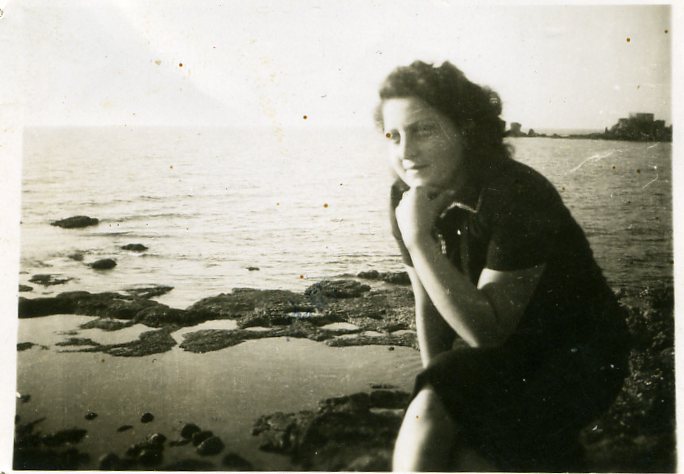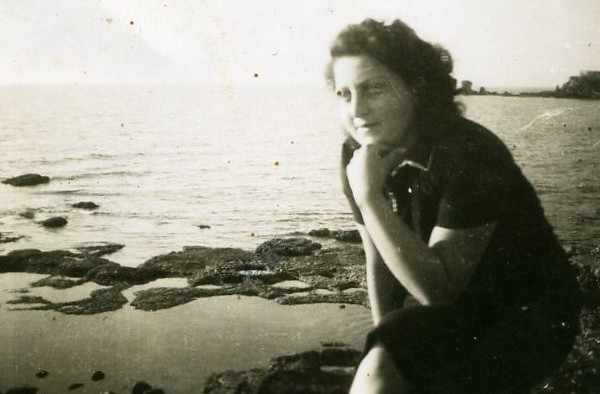
Hannah Szenes has become a near-legendary figure in Jewish heroism: After escaping Nazi-Europe in 1939 and making it to Palestine, she decided to volunteer as a paratrooper and return to her native Hungary to rescue Jews. She was then arrested, tortured, and ultimately executed for treason at age 23.
But what makes her legacy so enduring is her writing; she was a poet from a young age, and her most famous work, “Towards Caesarea” (often called “Eli, Eli,”) was put to music, and can be found in summer camp songbooks, Regina Spektor concerts, and playing over the ending of some versions of Schindler’s List.
But here’s the thing: Szenes had other work. She didn’t have the time to be prolific, but during her short life, she wrote in multiple languages: poems, diaries, and at least two plays.
Here’s the translation of a poem she wrote when she was only thirteen, which reads sort of like the emo poetry you wrote when you were her age, only better:
“Life is a brief and hurtling day, pain and striving fill every page.
Just time enough to glance around,
Register a face or sound
and—life’s been around.”
In retrospect, sure, the poem seems prophetic, but the darker work was yet to come. Though it’s really a shame that Szenes is known as a tragic figure, when some of her writing was joyous, and even hilarious. Take this adolescent diary entry:
“Do boys interest me? Well, yes, they interest me more than before, but only in general because I didn’t see a single boy I really liked the entire summer. True, I didn’t meet very many. This is my idea of the ideal boy:
“He should be attractive and well dressed, but not a fop; he should be a good sportsman, but interested in other things besides sports; he should be cultured and intelligent, but good-humored and not arrogant; and he should not chase after girls. And so far I have not met a single boy like this.”
She didn’t make it far past being a teenager, but maybe her stint on a kibbutz found someone at least approaching that standard.
Szenes continued to write in captivity, and after she died, a poem, likely from early on in her imprisonment, was found written on the wall of her cell. It’s sad, and resigned, but not regretful.
For this one Jewish girl, from worrying about boys, to facing her own mortality head-on, Szenes fit a lot into a short life.
The poem reads:
“One – two – three… eight feet long
Two strides across, the rest is dark…
Life is a fleeting question mark
One – two – three… maybe another week.
Or the next month may still find me here,
But death, I feel is very near.
I could have been 23 next July
I gambled on what mattered most, the dice were cast. I lost.”
Image credit: Wikimedia









My brother suggested I might like this web site. He was entirely right. This post truly made my day. You cann’t imagine simply how much time I had spent for this information! Thanks!
Taylor Lautner… By the way you might want to check out this cool site I found……
Thank you for any other great article. Where else may anybody get that type of info in such a perfect manner of writing? I’ve a presentation next week, and I am at the search for such information.
i can see that most mobile phones today are equipped with cameras and stuffs..
Oh my goodness! an excellent write-up dude. Thanks a ton Even so We are experiencing problem with ur rss . Do not know why Unable to register for it. Could there be everyone getting identical rss problem? Anybody who knows kindly respond. Thnkx
Many thanks very much for the info. I have been looking for this for a while with Bing and it has been a true undertaking.
What do you guys think of the new OSX Lion that just came out for Mac?
Perfect work you have done, this site is really cool with good information.